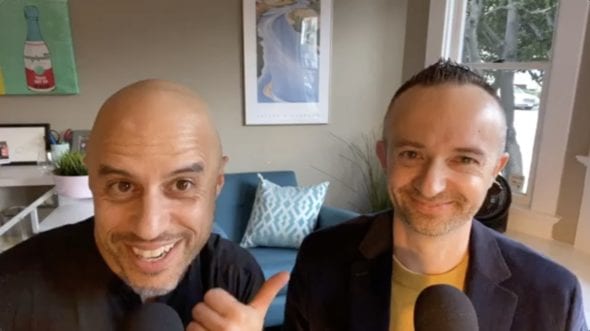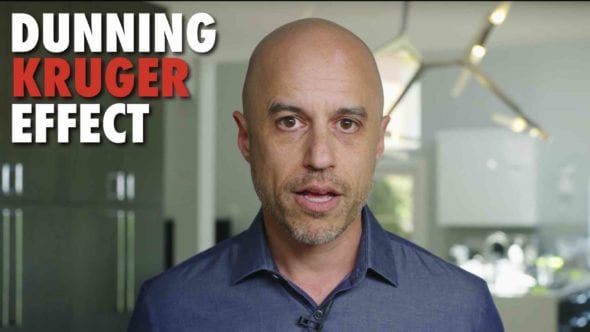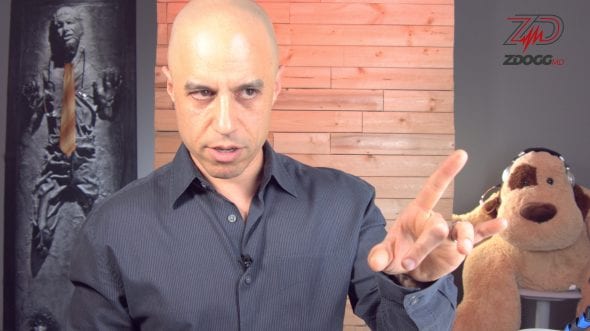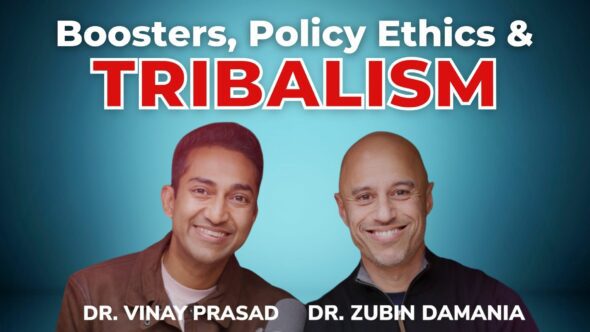Why did Colin Powell die in the setting of coronavirus infection when he was fully vaccinated? Here’s how I think about this.
– [Zubin] Okay, rest in peace, Colin Powell. Very sad, he was a very influential figure throughout my life because I grew up at the time of the First Gulf War, he was Secretary of State, George H. W., you know, the whole thing, right?
So we don’t need to rehash all that, but what we do need to talk about is how a lot of people in the sort of anti-vaccine side of the discussion are using his death, because he contracted COVID, as evidence that the vaccines don’t work.
So he was apparently fully vaccinated. He and his wife both contracted COVID, his wife got monoclonal antibodies, got better. He did not. So what’s going on? Well, it turns out, it’s important to know, that he had multiple myeloma, which is a blood cancer of immune cells.
So he was immunocompromised on a couple levels. He was 84, which puts him in that category of immunocompromised, you just don’t have a very robust immune system at that age. So even if you’re vaccinated, he would be exactly the candidate who would benefit from a booster because that age group doesn’t generate as much immune response in response to the first two shots.
Now, the rest of the population, 65 and under who are doing okay, don’t have immune compromise, they’re probably fine without boosters, right? Which we’ve done shows on. But Colin Powell was in the advanced age group, probably would have benefited from a booster, and actually was, I think, scheduled to get one. So the fact that he got an infection, which they call a breakthrough, it’s like, no, he…
The vaccine is not perfect, right? So you add to that the fact that he had multiple myeloma, which by the way, is an incredibly dangerous risk factor for having complications from COVID, regardless of vaccination, but then vaccination itself in the setting of immune compromise means the vaccine’s gonna be less effective because your immune system is less effective. You know, one thing I really like to impress on people is that people think there’s this dichotomy between doing well naturally, whether it’s natural infection, whether it’s natural diet, whether it’s avoiding medical interventions, things like that, which by the way, I’m for.
Versus the artificial stuff, medicines, vaccines, all of this. But you got to understand with vaccines, what you’re doing is you’re taking something very natural and robust and holistic, which is the human immune system, and you’re teaching it to do its thing for a particular disease agent, in this case, coronavirus, SARS-CoV-2. And so you, through vaccination are actually employing a natural process, which is your immune system.
If that natural process is impaired through cancer, which is what Colin Powell had, and age, which, he was 84, it’s gonna make it much harder for this to work. So I don’t think this says anything about vaccines as a tool against this disease, what it does say is, yes, elders probably should get a booster. People with immunocompromised like Colin Powell, should have gotten a booster.
That’s the population you boost, not everybody else, right? Not just the worried well necessarily. And that the second thing about it is that the population spread of coronavirus actually becomes important for people who are vulnerable. So people like Colin Powell, if he had, if the entire community was vaccinated at a very high rate, the amount of circulating coronavirus would be less because it replicates less, there’s five to tenfold less infection. And if you do get infected and you have big time symptoms, yeah, you’re gonna transmit.
But your chances of having that happen to you are considerably lower. But the third thing I wanted to say about this is that we do need to understand, at the age of 84, and again, this is not just about Colin Powell, it’s about anything. Something eventually is gonna cause us to die. We are all going to die. You may have delusions that you’re never gonna die. You may be in your 20s and think, it’s not happening to me.
You may be one of these singularity people who thinks, no, we’re gonna cure death. Yeah. Into the foreseeable future, death is a thing, and it’s not necessarily the enemy. At 84 with a cancer, something is going to be the tipping point. And those of us who work in internal medicine who take care a lot of elders, we see this. Whether it’s pneumonia, whether it’s an aspiration event where you get pneumonia, whether it’s a massive stroke, something is coming for us. And in the case of complex patients in complex situations who are much older, if you have a blood cancer and a virus infects you, a common cold could be the trigger that ends your life. It’s something we just have to understand.
So we do the best to mitigate risk, but you have to understand you never eliminate all risk. So that’s how I think we should think about this situation. I hope this was helpful, if it wasn’t, too bad. I love you guys so much. Please share the video, and we are out.
Related Videos
Category
- The ZDoggMD Show (797)
- Featured Videos (188)
- Doc Vader (142)
- Against Medical Advice (128)
- Medical Humor (95)
- Public Service Announcements (87)
- Music Parodies (74)
- Nurses (59)
- Meditation (38)
- ZVlogg (36)
- The VPZD Show (31)
- ZTalks (28)
- ZBlogg (24)






